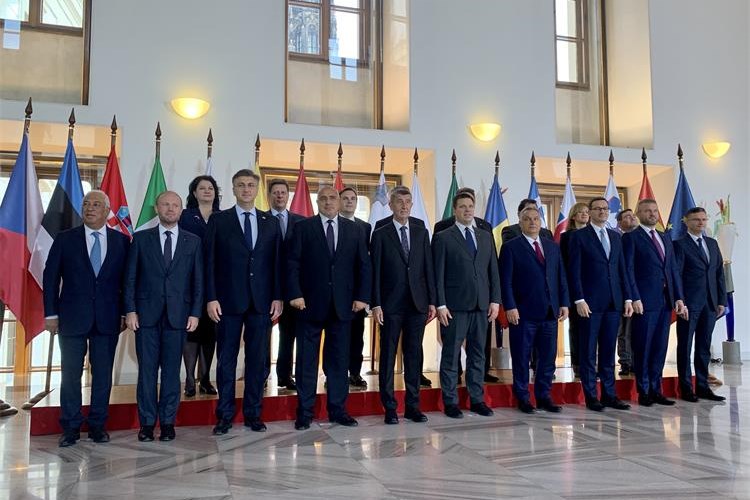- Published: 05.11.2019.
Plenkovic for agreeing on 2021-27 MFF as soon as possible
Croatia will do its best during its presidency of the Council of the EU, together with the next European Council President Charles Michel, so that an agreement on the 2021-27 Multiannual Financial Framework (MFF) is reached as soon as possible, Prime Minister Andrej Plenkovic said in Prague on Tuesday.
The moment when the agreement is reached isn't unimportant. The last seven-year budget was adopted quite late, which affected the implementation of operational programmes and concrete payments to the member states, he said at the end of a summit of 17 EU member states which are part of the Friends of Cohesion informal group, which is against slashing cohesion funds in the 2021-27 EU budget.
Plenkovic said he would not speculate as to when an agreement could be reached.
He was speaking at a joint press conference with the summit host, Czech PM Andrej Babis, as the prime minister of the next country to chair the Council of the EU, which Croatia will do in the first half of 2020.
As the next Council of the EU president, Croatia has the good will and the ambition to try to find, together with the next European Council president, Charles Michel, the broadest consensus possible on the next seven-year budget, which is undoubtedly the most important political document for the whole Union, Plenkovic said.
We must make sure that citizens in the member states feel the added value of Union membership. Aside from the importance of the cohesion and the common agricultural policy, we realise that we should also take into account security, migration, border management etc, he added.
He said the draft MFF presented by the European Commission was a solid foundation for reaching a compromise.
Participants in the summit adopted a joint declaration which reads that "the EU co-financing rate under shared management should be kept at the current 2014-2020 level, with sufficiently flexible rules, as excessive rigidity in this area would have a significant impact on the beneficiaries and could endanger effective absorption capacity."
The current national co-financing rate 15%, while the Commission is proposing 30%.
"In this respect, it is also necessary to maintain sufficiently high the EU pre-financing and the current n+3 decommitment rule, taking into account the challenges posed especially at the beginning of the implementation."
The matter of rebates
The Friends of Cohesion also insist "that the system of own resources needs to be fair, rationalized, simplified and that the withdrawal of the United Kingdom offers a unique opportunity to remove all rebates and corrections as from 2021."
The declaration says "it is crucial to strike a balance between the common EU targets and the possibility for Member States to allocate resources in accordance with their national and regional priorities, needs or changing circumstances."
"More flexible thematic concentration rules at regional as well as Member State level for Cohesion Policy funds, mainly the ERDF (European Regional Development Fund), would enable such balance."
The first Friends of Cohesion summit was held in Bratislava in 2018, and since then Spain joined the group which comprises Croatia, Czechia, Estonia, Hungary, Malta, Poland, Slovenia, Slovakia, Spain, Bulgaria, Cyprus, Latvia, Lithuania, Romania, Italy, Portugal and Greece.
The Prague summit was attended by ten prime ministers, while the remaining seven states were represented by ministers or state secretaries.
Text: Hina
